Training Your Bird to Talk
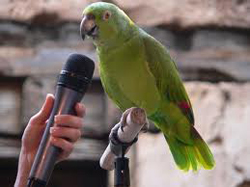 Due to their inherent intelligence, parrots have demonstrated the wonderful ability to “learn our language”. Much of this learning is done thru their intense observation of our interactions with other humans and household pets as well as our responses to certain situations such as a ringing phone or doorbell. Their ability to use complex and meaningful communication is one of the most enchanting aspects of these wonderful beings.
Due to their inherent intelligence, parrots have demonstrated the wonderful ability to “learn our language”. Much of this learning is done thru their intense observation of our interactions with other humans and household pets as well as our responses to certain situations such as a ringing phone or doorbell. Their ability to use complex and meaningful communication is one of the most enchanting aspects of these wonderful beings.
Teaching your bird to talk and sing can be accomplished by consistently applying language appropriate to what is going on in the house. Interaction, persistence, patience and most importantly, a good relationship with your bird, are key to teaching your bird to talk. A few more important points regarding speech training are:
- Speak clearly and repeat phrases.
- Conduct training in a quiet place free from competing distractions.
- Birds are naturally most vocal in the early morning and at sunset. They are more likely to learn if training is conducted at these times.
- Limit training sessions to 15-20 minutes twice a day.
- Start at as early an age as possible. Some species such as the African Grey are able to learn new words and phrases throughout their life but, for many species, the learning period effectively shuts down within the first few years of life.
- Birds have an appreciation for the dramatic. If you use emotion and enthusiasm in your speech it will catch their attention even more.
- Use praise and positive reinforcement liberally to acknowledge their attempts to communicate. The best reward for a parrot is always attention!
If you want your bird to learn to use language in a meaningful manner, it is important to speak in context to your bird. For example:
- Use names to consistently identify individuals and pets.
- Explain and talk about routine actions as they occur (i.e., feeding, cage cleaning, showers, scratches, bed time, etc).
- Birds learn best from observation of your interactions with other humans and animals. The model/rival technique has been employed by Dr. Irene Pepperberg in her interactions with Alex and other birds in her lab. Using this technique another human or bird "models" correct or incorrect responses to your questions and also serves as a rival for your attention during training.
Check out this video of a PBS segment with Alan Alda and Dr. Pepperberg demonstrating the model/rival method:
There are also many helpful products on the market to facilitate speech training.
If your bird doesn't learn to talk, don't stop trying to communicate. Not all birds will learn to talk but they still may be very capable of understanding some of our words as well as interpreting our tone and body language. Additionally, if we are astute students of their vocalizations and body language we may just notice that they are trying to communicate with us in other ways.
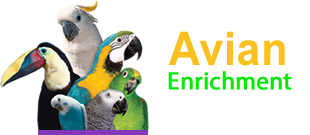



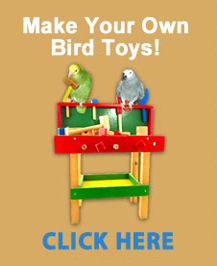
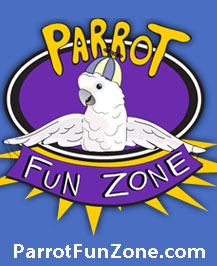
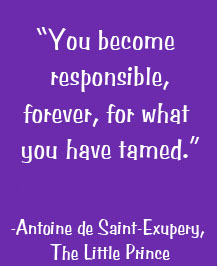
Comments powered by CComment